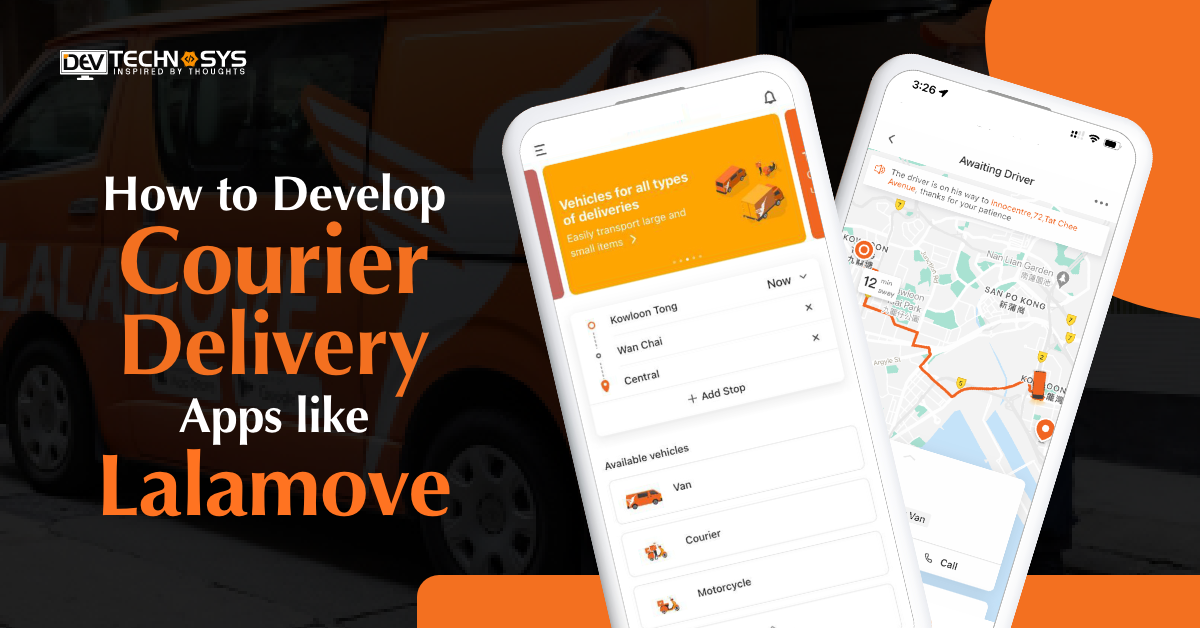In today’s fast-paced and dynamic business environment, managing human resources efficiently is crucial for organizations to thrive. Manual HR processes can be time-consuming, prone to errors, and hinder overall productivity. Thankfully, modern technology has given rise to innovative solutions like Factorial Software, transforming the way HR departments operate.
Factorial Software is a powerful, all-in-one tool designed to streamline and automate various HR tasks, empowering HR professionals to focus on strategic initiatives and employee engagement. By centralizing employee data, automating administrative tasks, and providing valuable insights, Factorial Software has become an indispensable asset for businesses of all sizes.
In this blog, we will delve into the world of Factorial Software, exploring its key features, benefits, and how it can revolutionize your HR operations. Whether you are a small startup, a growing mid-sized company, or an established enterprise, Factorial Software offers a comprehensive suite of tools to enhance your HR processes and drive organizational success.
So let’s begin.
Q1. What is Factorial Software?
Factorial is an HR solution for small businesses in a variety of industries. The key features are a time-off planner, an organizational diagram generator, a document manager, and many more.
Factorial is a tool that helps HR departments to manage annual leave, sick leave and absences. Users can accept employee requests or reject them directly through the solution. Users can monitor employee compensation and tailor compensation plans for different employees.
Employees can access their own accounts on Factorial’s employee web portal to request annual leaves, inform their employers of sick leave and check their paychecks. The portal helps managers share resources and communicate with their teams.
Q2. How does Factorial Software work?
Factorial HR Software is designed to streamline and automate various human resources tasks within an organization. It works by centralizing employee data, such as personal information, employment history, and performance records, into a single database.
This software enables HR professionals to efficiently manage employee onboarding, time off requests, attendance tracking, and performance evaluations. It also facilitates payroll management and generates detailed reports on workforce analytics.
Additionally, Factorial HR Software often includes self-service features, allowing employees to access and update their own information, request time off, and view company policies. Overall, this software simplifies HR processes, enhances data accuracy, and improves organizational efficiency by integrating essential HR functions into one user-friendly platform.
Q3. Why is Factorial Software so popular?
Below are some of the factors that make Factorial Software popular. So let’s start:
Comprehensive HR Solution: Factorial offers a comprehensive set of HR features and tools covering various aspects of human resources management. It provides functionalities such as employee onboarding, time tracking, leave management, document management, employee directory, analytics, and more. This all-in-one approach appeals to organizations seeking a unified platform to streamline their HR processes.
User-Friendly Interface: Factorial is known for its user-friendly interface and intuitive design. The software prioritizes ease of use, making it accessible for both HR professionals and employees. The user-friendly interface contributes to a positive user experience, allowing users to navigate and utilize the software with ease.
Scalability and Flexibility: Factorial caters to organizations of different sizes, from small businesses to larger enterprises. It offers scalable pricing plans and can adapt to the changing needs of growing organizations. The flexibility of the software allows companies to start with a basic plan and upgrade as their HR requirements expand.
Time and Cost Efficiency: By automating various HR processes and centralizing data, Factorial helps organizations save time and reduce administrative burdens. The software simplifies tasks like employee onboarding, leave management, and document management, reducing the need for manual paperwork and minimizing errors. This time and cost efficiency contribute to its popularity.
Integration Capabilities: Factorial offers integrations with popular third-party tools and services. This allows organizations to connect their HR software with other essential systems such as payroll, accounting, or project management tools. Integration capabilities enhance the overall efficiency and effectiveness of HR operations by enabling seamless data exchange between different platforms.
Q4. What Are Some Essential Facts About Factorial Software?
- Factorial is trusted by 60 000 renowned companies to manage their human resource management.
- Factorial achieved the largest investment round in Spain at the start of 2020 with EUR 15 million.
- Factorial, a Barcelona-based company, has raised more than EUR 120 million with a valuation of +EUR 1 billion. This makes it the latest European unicorn and the fastest-growing HRtech company.
- Factorial’s customer base has grown from 70 to 7,500 since 2019. Factorial now spans nine global markets, making it the fastest-growing company in its industry.
- Factorial, an HR software company founded in Barcelona in 2016, is a new player in the market.
- The company claims to have over 75,000 users in 65+ countries and clients like KFC, Booking.com and Whisbi.
- In 2022, the annual growth rate is expected to be 5.8%.
- Since 2016, Factorial, founded in 2016, has raised over $200 million. Its revenue has tripled every year.
Q5. How to Use Factorial Software?
Sign up: Visit the Factorial website and sign up for an account. You may need to provide some basic information about your company and create login credentials.
Set up Company Profile: Once you have an account, you will need to set up your company profile within the software. This involves adding details such as your company name, logo, and any specific information relevant to your organization.
Employee Data Management: Input or import employee data into the software. This includes personal information, contact details, employment history, and any other relevant data. Factorial may provide templates or import options to simplify this process.
Time and Attendance Tracking: Configure the time and attendance tracking features according to your organization’s policies. This may include defining work schedules, leave types, and setting up rules for attendance tracking.
Payroll and Benefits Setup: If you plan to use Factorial for payroll management, configure the payroll settings. This involves setting up pay periods, defining salary components, tax rates, deductions, and benefits specific to your organization.
Document Management: Upload or create necessary HR documents, such as employment contracts, policies, and employee handbooks. Organize them within the software to ensure easy access and compliance.
Employee Self-Service: Enable self-service options for employees and managers. This allows them to access their personal information, request time off, view payslips, and perform other HR-related tasks autonomously.
Recruitment and Onboarding: Utilize the recruitment and onboarding features of Factorial to streamline your hiring process. This may involve creating job postings, managing applicants, scheduling interviews, and facilitating the onboarding of new employees.
Q6. What Are the Top Competitors of Factorial Software?
Ceipal
Ceipal’s AI-driven platform for total talent acquisition is scalable and provides visibility through all channels. It also organizes your data to create a single talent ecosphere. Ceipal’s ATS and CRM solutions, powered by artificial intelligence and advanced automation, empower recruiters and personnel professionals to quickly identify, evaluate, engage, hire, and onboard top talent.
Keka
Keka, a cloud-based HR solution, helps companies manage employee profiles, track attendance and process recruitments. It also analyzes performance. The features include GPS, pulse survey, document storage and helpdesk.
They also have role-based permissions for workflow management, asset tracking, and workflow management. Keka allows HR managers to track employees’ overtime, create leave policies, and create an organizational hierarchy.
Zigtal
Zigtal is a talent management tool that helps companies engage, develop, and retain employees by aligning their aspirations with organizational goals. The platform includes a personal branding model for employees, an engagement model based on outcomes, and gamification features to improve results. Managers can build strategies based on insights about engagement, behavior patterns and in-demand skills.
Ascentis
Ascentis provides a cloud-based Human Capital Management (HCM), which is designed for companies in mid-size, regardless of their industry. It covers HR and benefits, as well as recruiting and onboarding. Talent management, time-and-attendance and payroll are also included.
Ascentis’ HR gives insights into trends by analyzing employee metrics. Ascentis offers data access for HR managers and employees through its mobile app. Ascentis Time, a fully-automated solution for time and attendance, features online timesheets with clocking in/out, scheduling, and more.
Arcoro
Arcoro’s HR management solution is the key to better HR. Arcoro offers cloud-based, configurable HR software modules with over 10,000 customers in 20 countries and 360,000 users daily. These modules are designed to help organizations scale and grow efficiently while maintaining compliance.
The solution includes an award-winning candidate tracking system, recruiting AI, HRIS time & attendance management, benefits management reporting for ACA compliance, online training, performance management, compensation planning, and succession planning.
Q7. What Are the Major Features of Factorial Software?
Employee management: Factorial Software enables you to efficiently manage employee data, including personal information, contact details, employment history, and documents.
Time and attendance tracking: It provides tools for tracking employee attendance, working hours, and time-off requests, making it easier to manage schedules and monitor productivity.
Leave management: The software facilitates the management of employee leaves, allowing employees to request time off and managers to approve or reject requests. It also provides visibility into leave balances and automated accrual calculations.
Employee self-service: Employees can access their personal information and payslips and request time off through self-service portals, reducing administrative burden and promoting employee engagement.
Payroll management: Factorial Software simplifies payroll processing by automating calculations, tax deductions, and generating digital payslips. It helps ensure accurate and timely salary payments.
Performance management: The platform offers tools for setting performance goals, conducting performance reviews, and providing feedback. It aids in monitoring employee performance and identifying areas for improvement.
Document management: You can store and manage employee-related documents securely in a centralized digital repository. It simplifies document organization and retrieval and ensures compliance with data protection regulations.
Q8. What is the Pricing of Factorial Software?
Free trial: It is free of cost and does not charge.
Essential: €4 per user/month and €3 per user/month billed annually.
Business: €5 per user/month and €4 per user/month billed annually.
Enterprise: $6.68 per user/month.
Q9. What Are the Advantages of Factorial Software?
Streamlined HR processes: Factorial Software simplifies and automates various HR tasks, reducing manual effort and administrative burden. It streamlines processes such as employee data management, time and attendance tracking, leave management, payroll processing, and performance management. This improves overall efficiency and allows HR teams to focus on more strategic initiatives.
Improved accuracy and compliance: By automating calculations, generating accurate payslips, and ensuring compliance with labor laws and regulations, Factorial Software helps minimize errors and reduces the risk of non-compliance. It helps businesses stay up to date with legal requirements, tax obligations, and data protection regulations.
Enhanced employee self-service: The self-service portals provided by Factorial Software empower employees to access and manage their personal information, request time off, view payslips, and update their details. This self-service functionality improves employee engagement, saves time for HR teams, and promotes transparency and autonomy.
Centralized data management: With Factorial Software, employee data is stored in a centralized database, making it easy to access and update information whenever needed. It eliminates the need for manual record-keeping and reduces the risk of data duplication or loss. Centralized data management also facilitates reporting and analytics, providing valuable insights for informed decision-making.
Scalability and flexibility: Factorial Software is designed to scale alongside the growth of your business. Whether you have a small team or a large organization, the software can accommodate your needs. It allows for easy onboarding of new employees, adapting to changing organizational structures, and integrating with other tools or systems.
Time and cost savings: By automating manual HR processes and reducing paperwork, Factorial Software saves valuable time for HR teams. It streamlines workflows, reduces errors, and improves overall efficiency, allowing HR professionals to focus on strategic tasks. Additionally, the software eliminates the need for multiple standalone HR tools, consolidating functionalities into one platform and potentially reducing costs.
Q10. What Are the Drawbacks of Factorial Software?
Complexity and learning curve: Implementing a new HR software like Factorial may require time and effort in training employees and adapting to the new system. The learning curve could be steep for some users, especially those unfamiliar with HR software or technology in general.
Customization limitations: While Factorial Software provides a range of features, it may not cater to the specific needs or workflows of every organization. Some businesses may require more customization options to align the software with their unique HR processes. In such cases, limitations in customization capabilities could be a drawback.
Integration challenges: While Factorial Software offers integrations with other tools and systems, there may be limitations or challenges in integrating with certain existing HR or business software. Compatibility issues or the need for additional development work may arise when attempting to integrate Factorial with specific systems, which can be a potential drawback for organizations with complex IT ecosystems.
Reliance on Internet connectivity: Since Factorial Software is cloud-based, it relies on a stable Internet connection for seamless access and functionality. In cases of internet outages or disruptions, there may be temporary limitations or interruptions in accessing the software, potentially impacting HR operations.
Limited support for local regulations: Factorial Software may have limitations in terms of supporting specific local regulations and compliance requirements. While it aims to address general HR regulations, businesses operating in highly regulated industries or specific geographic regions may find that certain local compliance needs are not fully covered.
Pricing considerations: The cost of Factorial Software may vary depending on factors such as the number of employees, the desired feature set, and the subscription plan. For small businesses or startups with limited budgets, the pricing structure of the software may be a potential drawback if it exceeds their financial capabilities.
Q11. How Much Does it Cost to Develop Software Like Factorial?
The cost of developing software like Factorial, or any other complex software application, can vary significantly based on several factors. Some of the key factors that can influence the cost include:
- Scope and Complexity
- Features and Functionality
- Platform and Integrations
- Development Team
- Design and User Experience
- Testing and Quality Assurance
- Maintenance and Updates
Considering these factors, it is challenging to provide an exact cost without specific project details. However, developing software similar to Factorial can range from $25000 for a basic version to $50000 or even more for a more comprehensive and feature-rich solution.
It’s advisable to consult with a software development company or hire a project manager to discuss your specific requirements and get accurate cost estimates for your particular project.


















